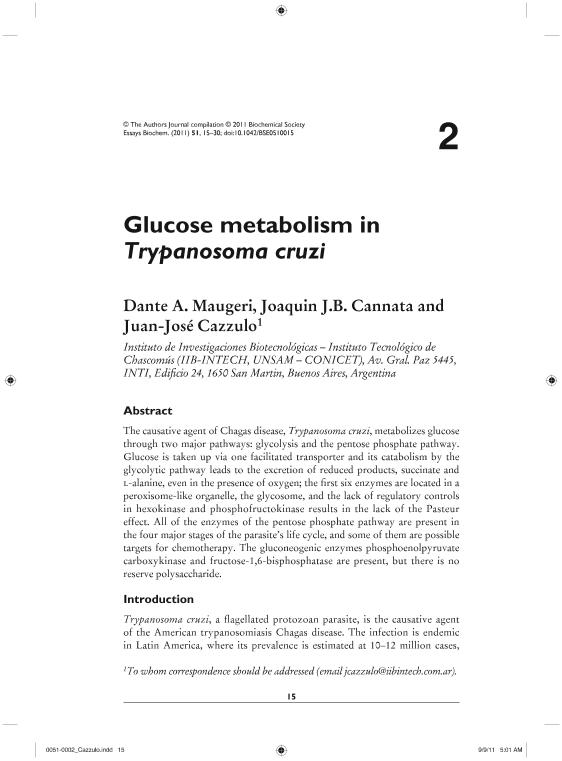Artículo
Glucose metabolism in Trypanosoma cruzi
Fecha de publicación:
12/2011
Editorial:
Portland Press
Revista:
Essays In Biochemistry
ISSN:
0071-1365
Idioma:
Inglés
Tipo de recurso:
Artículo publicado
Clasificación temática:
Resumen
The causative agent of Chagas disease, Trypanosoma cruzi, metabolizes glucose through two major pathways: glycolysis and the pentose phosphate pathway. Glucose is taken up via one facilitated transporter and its catabolism by the glycolytic pathway leads to the excretion of reduced products, succinate and l-alanine, even in the presence of oxygen; the first six enzymes are located in a peroxisome-like organelle, the glycosome, and the lack of regulatory controls in hexokinase and phosphofructokinase results in the lack of the Pasteur effect. All of the enzymes of the pentose phosphate pathway are present in the four major stages of the parasite's life cycle, and some of them are possible targets for chemotherapy. The gluconeogenic enzymes phosphoenolpyruvate carboxykinase and fructose-1,6-bisphosphatase are present, but there is no reserve polysaccharide.
Archivos asociados
Licencia
Identificadores
Colecciones
Articulos(CCT - LA PLATA)
Articulos de CTRO.CIENTIFICO TECNOL.CONICET - LA PLATA
Articulos de CTRO.CIENTIFICO TECNOL.CONICET - LA PLATA
Citación
Maugeri, Dante A.; Cannata, Joaquin Juan Bautista; Cazzulo, Juan Jose; Glucose metabolism in Trypanosoma cruzi; Portland Press; Essays In Biochemistry; 51; 1; 12-2011; 15-30
Compartir
Altmétricas




